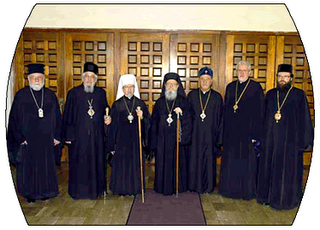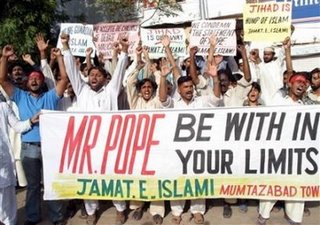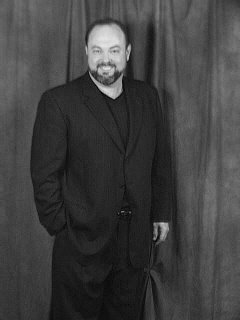
For only the third time in the history of the establishment of SCOBA (The Standing Conference of Canonical Bishops in the Americas) the member hierarchs are meeting in Chicago October 3-5 of this year.
The last time the hierarchs met in Ligonier PA, they discussed organizational unity and came out with a provocative (to some)statement that the Church in America should no longer be considered "diaspora" (www.orthodoxwiki.org/Ligonier_Meeting).
Regardless of one's opinions about the Ligonier meeting, it did happen. Our hierarchs did make the statements they made, and the "cat" as they say is "out of the bag." We will never be the same Church we were before this meeting, and the events (which I will not rehearse here) happened and the ripple effects of the discussion of unity cannot be put back in the bottle.
That's a good thing!
I have found that most people like to avoid conflict. They do their best to either placate or ignore. They will use every psychological defense mechanism they have to either pretend there is no conflict or to sequester themselves among others who agree with them. However, this is not the path of the Christian.
We were made, we were redeemed, to experience the Life of the Holy Trinity, and the Holy Trinity is One.
So, where does conflict (and make no mistake, conflict is inevitable) fit in this vision of unity among Christians?
It so happens that conflict is NECESSARY for unity to be achieved.
St. Paul told the Corinthians that he was glad there were divisions among them. It was in the disputes that St. Paul could discern the wheat from the chaff (see 1 Corinthians 11:17-19).
Conflict and the hard work of communion isn't for the squeamish. Conflict reveals motives, fears, agendas, and all manner of things most of us would rather keep hidden. But authentic unity doesn't come from hiding ourselves. It comes from revealing ourselves in the midst of the safe and healing community of the Church where grace and mercy are always in abundant supply.
But we NEVER reach this safe place without conflict, both internally and externally. And while this conflict my be unpleasant, it is still good.
Some believe that all we need in our Church here in America is organizational unity. Others claim we are still too immature to have that kind of unity. Still others fight against this idea because they are still much more immigrant than American and they fear loosing their only connection to their homeland.
The fact is we are already united. We all come to the One Cup and feed ourselves from the One Body and Blood of Christ. We ARE one. Our nationality does not hinder this, only our sin and ignorant pride.
Would we better witness to the faith if we didn't have so many duplications of efforts? Well, of course we would. But do we really believe that the average parish in America is ready to nurture the hurting and seeking souls of average Americans looking for the fullness of the faith?
To be sure, there are many parishes who are already doing this nurturing, and this is where our organizational unity will come - from the ground up, just as it always has among us Orthodox.
That doesn't mean those calling for organizational unity should be silent. On the contrary, let's keep holding up the ideal as a mirror to the sad waste of resources that are hindering our witness. But do not be discouraged when others of equal sincerity disagree strongly with you.
This is the process that conflict always puts into motion - we are either working toward unity or displaying for all to see our hidden desire for division because of our fear or pride. Lord have mercy.
In the end, we will have organizational unity. It is inevitable, but let us pray that organizational unity will be a manifestation of our deeper spiritual unity and not simply a facade to hide our divisions. That kind of unity will do as much or even more harm to the witness of the faith.
I long for a visible unity of our Church and every time I go to the Cup with my brothers and sisters, my longing is quenched!




